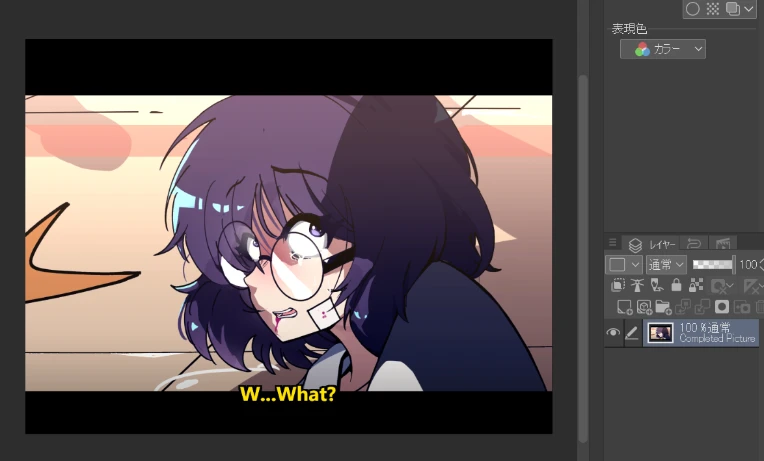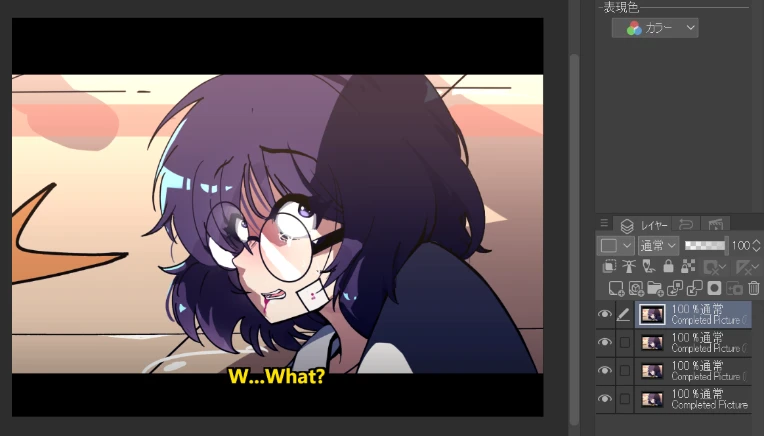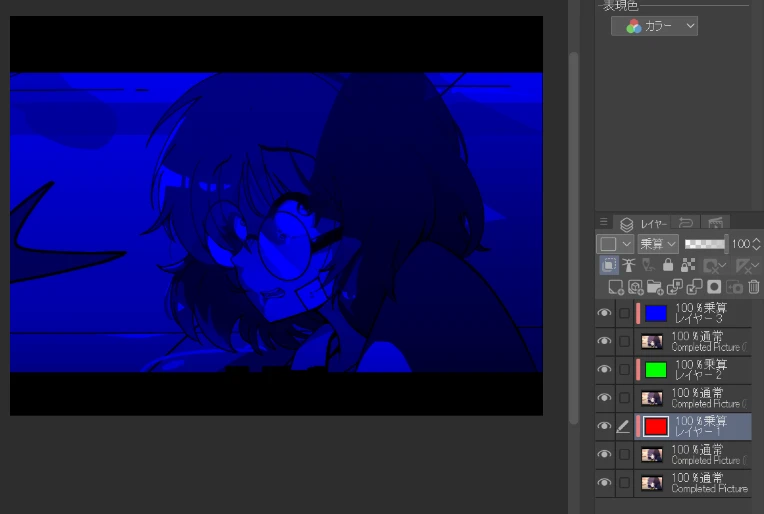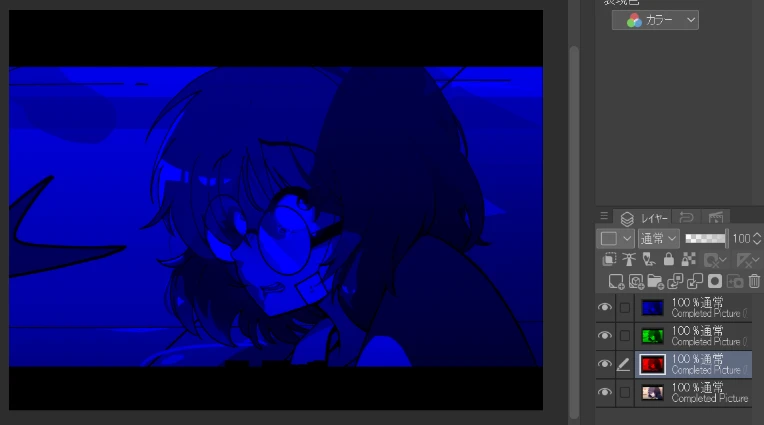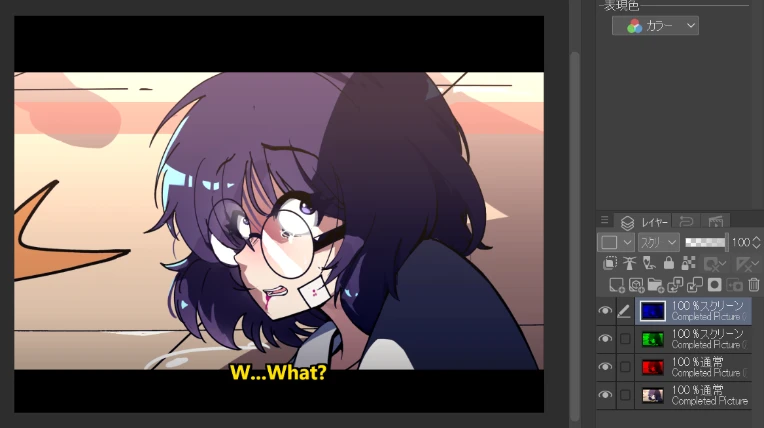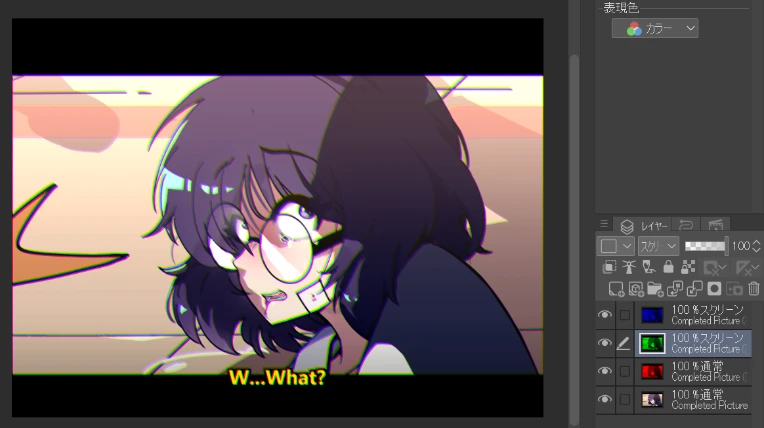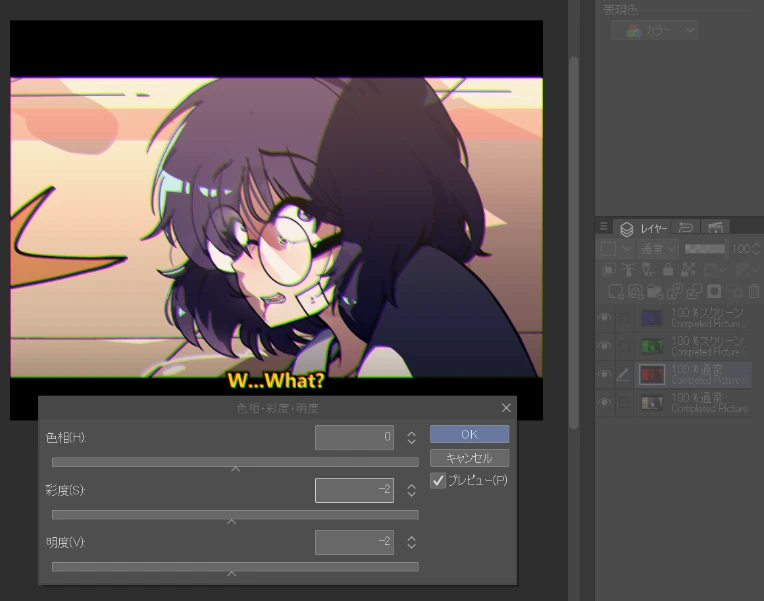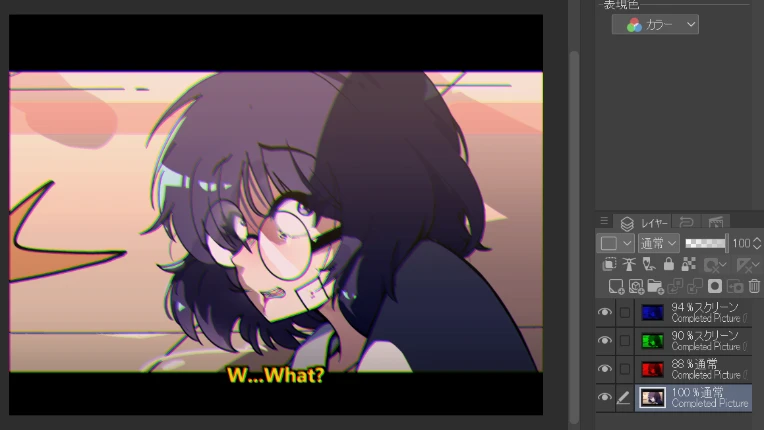In Japan, there is a format of horror stories called "Roa (ロア)" (possibly derived from the word "folklore"), which generally includes the following characteristics:
- Each story begins and ends with the phrase "Believe it or not— (信じようと、信じまいと―)".
- Each story consists of four lines.
Interestingly, this format began with a famous thread on 2ch, a Japanese online community. In this article, I would like to introduce the origin of the "Roa" stories.
It all began in the Occult category on August 24, 2003. A user suddenly started posting a series of short stories, which later came to be known as "Roa", with the phrase "Believe it or not—".
================
Believe it or not—
There is said to be a mansion in the Eisenach region of Germany that seems to be alive.
It is said that each time you enter, the positions of the rooms and the shapes of the hallways change.
In 1972, when a university research team visited, one of the students accidentally damaged a wall.
Then, a sound resembling a loud scream echoed through the mansion, and no further strange phenomena occurred after that.
Believe it or not—
In 1922, bullets and the bones of a Stone Age man shot to death were unearthed at a Stone Age site in Mexico.
The following year, Mr. Carnarvon, the discoverer, died from an accidental discharge of his hobby crossbow.
The arrow hit his temple just like the bones he found.
Today, the cause of death of the Stone Age man is considered to be blunt force trauma.
Believe it or not—
In the North Carolina region of the United States in 1960,
a certain woman claimed to have been abducted by aliens.
There was nothing physically wrong with her body, but strangely, when the woman later became pregnant,
although her water broke, nothing was ultimately born.
Believe it or not—
On September 3rd, 1902, a boy was born in a village in Yamagata Prefecture.
As soon as the midwife and his mother saw the child, they covered his right eye with a bandage.
The man continued to wear the bandage until he died at the age of 40,
and in the end, no one ever knew what had happened to his right eye.
Believe it or not—
In London, a man who had been missing for five years was found in the same attire as when he disappeared.
According to his account, he discovered a button for the third floor in the elevator of a two-story building,
and out of curiosity, he pressed it and found that five years had passed when he emerged outside.
The building had been expanded to three stories during the five years the man was missing.
Believe it or not—
There is a famous taxi ghost story where a passenger suddenly disappears. This is the true story behind it.
A man who had killed his lover and disposed of her body in a lake called Jogasaki suddenly noticed a foul odor while driving home.
Upon checking the trunk, he found the body. Terrified, he went to dispose of it again, but this time found the body at his own home. Fearing for his life, he turned himself in to the police.
According to the landlord of the apartment where he lived, the man hadn't left the building that day. Was he just dreaming? Or...
Believe it or not—
================
On August 24th, the original poster submitted these six stories, writing "See you tomorrow" in the name field, suggesting that he would post "Roa" again the next day.
And the next day, he appeared exactly at midnight.
================
Believe it or not—
It is said that there is a moving doll in a certain region of South Africa.
When a British journalist went to the place where it was, he found it standing motionless.
When he reported this to the locals, they immediately turned pale. The doll should be sitting.
When the journalist returned, the doll was sitting and smiling.
Believe it or not—
In 1989, J, living in Colorado, USA, stumbled upon a murder threat on an online bulletin board.
On that same day, J accidentally ran over an unfamiliar elderly woman.
When the police investigated her identity, they found out that she was the intended victim mentioned in that murder threat J had seen.
However, even after searching, no such post as J described could be found anywhere. What did J see?
Believe it or not—
In the Shibuya Ward of Tokyo, there is a manhole near Inokashira Street that never opens.
Its security is so tight that lead has been injected into its interior.
Moreover, some claim to have heard noises coming from inside the manhole.
Beneath it, there are neither sewers, nor gas pipes, nor subway tunnels. What could it possibly be covering?
Believe it or not—
This is a story from shortly after the end of World War II. Unidentified creature footprints were discovered in the forested area of Yanhe Village, China.
Despite the efforts of a Chinese government investigation team, which conducted surveys under strict surveillance, the footprints only multiplied.
In the 1960s, a thorough investigation was conducted again, this time using surveillance cameras.
The recorded tapes revealed something astonishing: footprints were walking on the ground where there was nothing above.
Believe it or not—
================
On the 25th, after posting these stories, the original poster wrote as follows:
"Right now, the Roa (rumors) I'm writing about are not originally from my own knowledge.
Not even fabricated stories. These are things I've been informed about almost forcibly.
Currently, I know 52 other Roa besides these, but it takes courage to speak about them further.
Because — well, I'll talk about it tomorrow night."
================
Believe it or not—
In a certain location within Tokyo, there is a closed-off spiral staircase in a girls' high school.
Descending down where there isn't a single window, you'll find a small room also devoid of any windows.
In the middle of the floor, for some reason, there is a telephone.
Of course, the telephone line isn't connected, but sometimes when passing by the closed door, a ringing sound can be heard.
Believe it or not—
On February 4, 1966, in Hokkaido, a family was traveling by car towards Chitose Airport. Strange events of that day.
Despite the road being almost straight to the airport, they found themselves somehow driving in the opposite direction.
No matter how many times they changed direction, they were always redirected back to the original location, ultimately missing their scheduled flight.
However, the plane they missed was the one involved in the All Nippon Airways disaster off the coast of Haneda, which crashed into Tokyo Bay on the same day.
Believe it or not—
In 1689, in Oregon, USA, a potato farmer named A murdered his friend and buried him in a large hole near his own field.
The following year, when A ate the harvested potatoes at home, bones from the murdered man's fingers were found inside them.
Various parts of the man's bones were also found mixed in with other shipped potatoes, and A was subsequently arrested.
The burial site was somewhat distant from the field, and no one knew why the bones ended up mixed in with the potatoes.
Believe it or not—
In the northern part of Belgium, there is a place called the "Forest of Disappearance." Local people are afraid to approach it because whenever someone goes there, they inevitably disappear.
This incident occurred when a group of Japanese university students visited there for fun.
They entered the forest and when they came out, the five of them confirmed with each other that no one had disappeared and felt relieved.
However, when they were packing up at their accommodation before returning home, they found an unfamiliar Japanese-made bag left behind. Whose bag could it have been?
Believe it or not—
In the village of Cambre in southern France, there was a well that produced clean water.
The water was abundant, and the villagers had valued it greatly for many years.
However, in 1862, the water suddenly stopped flowing, so the villagers descended into the bottom of the well.
To their surprise, there were no traces of water veins, let alone evidence of their existence, only a stone floor. What had they been drawing water from?
Believe it or not—
================
On the 26th, after posting these stories, the original poster wrote as follows:
"The beginning of it all was a letter I received a week ago.
There was no sender's name on the letter, and with suspicion,
as I opened it, there were 62 Roa typed on it.
And at the end of the letter, the following sentence was included:
'Believe it or not—
Add one Roa you know to this letter and send it to one person.
And, you can only share up to 10 of these Roa with others.
If you break this rule, this letter with your name on it will start circulating.
My name is Roa. Until the day I conquer reality—
I am the darkness, the underground, the unseen.
I am chance, fate, and miracle.
And I am both meaningless and meaningful.
My name is Roa. Until the day I conquer reality—
Believe it or not—'
Perhaps they want to imply that something bad will happen to me.
However, I am not someone who believes in these kinds of stories at all.
So, I have no intention of sending chain mails, and I probably think this content is made up.
However, this Roa itself is very interesting, so I created this thread to let everyone enjoy it.
Even though I'm like that, I was still a little scared to post more than 10 stories.
However, since I've already shared them, even if this turns out to be true, there's nothing I can do about it now.
If something happens to me, I plan to report it as well.
That's the situation. So, please continue to support me from now on."
================
Believe it or not—
In 1958, archaeologist Prole excavated the ruins in India and discovered a stone sphere with a diameter of about one meter.
However, it disappeared while he was briefly distracted calling his colleagues. Intricate patterns were left on the ground.
Three days later, a similar object appeared suddenly in the square of Nizamabad, India.
The city planned to transport it by truck, but this time, the truck vanished along with the sphere. Similar patterns were left on the road.
Believe it or not—
The Soviet spacecraft Soyuz 1 was successfully launched but failed during landing.
Its crew member, Colonel Vladimir Komarov, became a casualty.
What's mysterious is what happened afterward. The Soviet government inexplicably added a biologist to the spacecraft recovery team.
Furthermore, in the forested area where it crashed, red mysterious lights were reportedly sighted repeatedly for the following three months.
Believe it or not—
In 1995, a study by the Korean Institute of Communication Technology revealed astonishing results.
It claimed that there was a time when the total number of accesses worldwide was about 120 times the total number of PC users.
Considering the specifications of PCs at the time, it seemed impossible for one computer to access so many sites.
Who could have slipped through the cracks?
Believe it or not—
On a day in June, the pocket watch of British MP Barry Church suddenly stopped at 8:20.
Unable to determine the time, he hurriedly made his way to Parliament.
Upon his arrival, he glanced at the Parliament clock, which showed exactly 8:20. At that moment, his pocket watch began ticking again.
Since then, he earned the nickname "Hasty Church."
Believe it or not—
================
On the 27th, after posting these stories, the original poster wrote as follows:
"Status Update:
Nothing particularly unusual has happened.
If I had to say something, the only thing would be that there were misbound pages in the novel I bought today."
At exactly midnight on the following day, the 28th, he appeared again.
================
Believe it or not—
The story of the man who emerged from the elevator five years ago has another continuation.
Another man who heard this story went to the building with his friend, prompted by the news that the building was to be renovated again.
They discovered a button for the 4th floor and decided to press it. However, before the doors closed, they heard something terrifying—that the renovation plans had been canceled.
While his friend hurriedly got off, the man never returned.
Believe it or not—
An incident occurred in 1854 in the prestigious Yorgen family of Turkey.
In an attempt to escape the flames of the Crimean War, the Yorgen family planned to migrate to Central Europe.
While packing belongings for their escape, their eldest son Roy, then six years old, discovered a portrait inside a box in the warehouse.
The portrait depicted a boy closely resembling Roy, and its title was "1854."
Believe it or not—
In 1895, German medical researcher Schubert, while experimenting with an anti-inflammatory drug developed under the study of traditional Chinese medicine, encountered an accident when he applied it experimentally to a patient with tenosynovitis.
Shockingly, the patient who applied it to both arms committed suicide by strangling himself with both hands.
The patient who applied it to only one arm narrowly escaped danger by restraining the arm that tried to strangle with the other arm.
Many of the organisms used in the traditional Chinese medicine imported by Schubert are currently unidentified.
Believe it or not—
There's a story about an Italian mathematician named Eriko who claimed to have proven that 0 equals 1.
He confidently wrote out the proof on a piece of paper in front of his friends and explained it.
When he finished explaining, his friends looked up from the paper, utterly perplexed, only to find Eriko had vanished.
Upon returning their gaze to the paper, they discovered that the equations he had just written had also disappeared.
Believe it or not—
In the year 1991, the president of a construction company in Gunma was found dead in his home from exhaustion. His diary contained the following:
One year prior, I murdered a councilman who intended to expose my collusion with the mayor and buried him in the wall of the newly constructed auditorium.
However, due to opposition from the residents, the demolition was decided. The fear of the murder being exposed was terrifying, and I tried to gain the support of the residents, but it was in vain.
However, what's even more terrifying is that no matter how much we demolished the wall, the body never appeared.
Believe it or not—
In the 18th century, in a region corresponding to present-day Austria, a woman named Camille became pregnant, but the man disappeared.
The woman resolved not to give birth until the man returned. Over the next several decades, the man never returned, and the woman's abdomen swelled endlessly without giving birth to anything.
In the end, the man never appeared, and Camille died. And it is said that the body of an old man emerged from her abdomen.
Believe it or not—
Around 1970 in a fishing town in Spain, a woman dressed in a bright red raincoat would always appear on stormy days.
Despite the eccentricity of her behavior, everyone in the town knew about her, yet no one had ever seen her face.
One stormy day, a fisherman spotted the woman and tried to warn her about the danger.
However, when he approached her, he found that there was no body inside the coat; it collapsed to the ground, empty.
Believe it or not—
There was a man in Ireland named Chris who was troubled by dreams of being a prisoner.
He sought help from psychiatrists but showed no signs of improvement. Unbeknownst to him, this man, actually named George, was a prisoner, and Chris was his dream self.
Nevertheless, he continued to believe he was Chris until he died in prison.
Are you really awake right now?
Believe it or not—
================
On the 29th, after posting these stories, the original poster wrote as follows:
"Status Update:
Has something terrible happened? Or is it still just a premonition?
There are four things.
First, it might just be my imagination, but in this thread, some characters appear garbled. Perhaps it's because of my old computer, but it's eerie, especially given the timing.
Another thing is about the misbound pages. I was concerned and reread the pages with misbinding today, and the misbinding has spread. At least, when I saw it the day before yesterday, only one character seemed smudged, but now whole lines are faint. It would be okay if it were just the ink smudging.
The third is about the posting time. I usually aim to post at midnight for clarity and a certain sense of dignity. But yesterday, I overslept and hurriedly posted at 0:05. It's true. But why does the posting time show as 0:00?
Finally, it's about Roa. When the envelope arrived, I looked into some Roa. I was merely searching online though. At that time, I couldn't find anything about Soyuz, the spaceship, but now there are search results, and it's in my memory too. Could it be that Roa is becoming real? No way!"
================
Believe it or not—
Los Angeles. In 1992, a man was taken to a mental hospital. Here's his story:
Last night, when I went to the convenience store, there was a bright red surveillance camera. Because the color stood out, I became curious.
Then, I noticed it at the laundromat and public phone I visited afterward. And when I saw it on my home's front door, I fainted.
The man later died in mysterious circumstances. His face was turned towards the ceiling, appearing as though he was frightened by something.
Believe it or not—
This is a story of a Japanese photographer who stayed at a hotel in Novokuznetsk, Russia.
He stayed there to capture the beautiful lake visible from the window.
Despite it being February, he spotted a young man swimming in the lake through his lens.
Thinking he would make a great subject, he went out from the hotel to the lake. But when he arrived, there was no sign of anyone, and the lake was covered with thick ice.
Believe it or not—
In the western part of Greece, there was a pond known to locals as the bottomless pond.
In order to survey the country's terrain, government surveyors measured it by lowering a wire from a boat. However, even after lowering it 100 meters, the wire never reached the bottom.
At that moment, the wire was pulled down with great force, causing damage to the boat. Deeming it dangerous, the government decided to fill the pond.
They poured soil into it using trucks, but strangely, it immediately filled up, and now, even when digging into the ground, there is only soil as far as one can go.
Believe it or not—
In 1812, a man named Arold in Italy self-published about 100 books.
He placed around 50 copies in nearby bookstores and kept the rest in his possession.
However, just a week after publication, his house caught fire, resulting in the destruction of the books and his death. Furthermore, all the books in the bookstores were infested with insects.
Currently, not a single complete copy exists. The title of the book was "How to Create Miracles."
Believe it or not—
There's a story about a "box that trapped the devil" in a certain church in Marseille.
When you shake the box, you can hear something like wooden balls rattling inside.
In 1988, a female reporter from an American TV station visited there and opened the lid without the pastor's permission.
However, nothing was found inside the box.
Believe it or not—
This is a theory proposed by a Scottish biologist.
He states that genes exist in animal cells. During cell division, the telomeres at both ends of the chromosomes shorten, and eventually, when they disappear, cell division stops. This is aging.
However, if the genes are in a ring shape, they do not shorten, and theoretically, the organism becomes immortal although unable to reproduce.
According to him, based on probability, at least five such humans have been born to date. Where are they now?
Believe it or not—
================
On the 30th, after posting these stories, the original poster wrote as follows:
"I'm scared. Really scared.
Today, when I showed my friend the novel with misbound pages, he said there were no misbindings anywhere.
I nervously looked back at the fallen parts, and sure enough, there were no misbindings.
However, the words written there had changed. It said this:
'Roa will find you, and you will become Roa.'
I got scared and threw the book away and came home.
Could it have been a mistake? Probably, I think.
I've been thinking about Roa a lot lately, so maybe my mind is playing tricks on me.
Yes, that's what I'm thinking now.
Since yesterday, random things have been popping into my head and disappearing. For example—
We have knowledge of almost everything about the world, even though we haven't seen everything.
But perhaps Roa might be included in that knowledge.
And maybe it's sitting somewhere in reality, pretending like nothing's wrong.
Since yesterday, I've been scared of the dark. It feels like Roa is lurking there.
The area under the desk with the computer scares me. Because it's dark there.
And the computer scares me. What if the garbled characters I'm seeing now turn into terrifying words, like in that novel, without me realizing it?
Becoming Roa—
I can't help but feel this is what it means.
If Roa has the power to become real, then wouldn't my own existence, in turn,
simply become a "story"?
Lately, I feel like my memories outside of writing on this thread have been fading.
Like what I ate for lunch today, or where I went.
My friend who I showed the novel to doesn't seem sure either. Did that even happen? Did I even have the novel?
Tomorrow, I really plan to go to the hospital. This is bad. Really bad."
================
Believe it or not—
Nine birthday cards were sent to the French nobleman Oriol.
However, five of them were lost due to accidents during delivery. Three did not reach their destination due to address errors,
and the last one, which was supposed to have been sent, somehow returned.
Oriol died the day before his birthday. He never reached that day.
Believe it or not—
In 1994, a man named Ozro underwent a corneal transplant in Romania.
The following year, he disappeared. It was reported that all mirrors, glass, and any other reflective surfaces in his house were shattered into pieces.
A diary was found on his desk, filled with a significant number of entries since the day of the transplant.
One phrase was repeatedly written: "My right eye is glaring at me."
Believe it or not—
================
After writing this far, the original poster disappeared. After that, Netizens hoped for the poster's return, but he never came back. Many believe that the poster became a "Roa" as predicted by the letter.
Following this, the format of horror stories called "Roa" became a major trend in Japan, with various netizens posting numerous Roa stories. It is said that the total number of Roa stories now exceeds 2000. If time permits, I would like to introduce some of them as well.
This is the end of the story of "Roa". If you found Roa interesting, please feel free to create and share your own Roa.
Thank you very much for reading the article through to the end.
